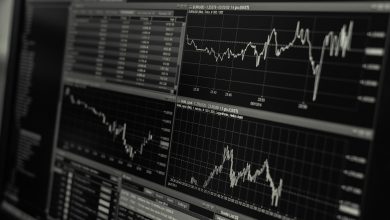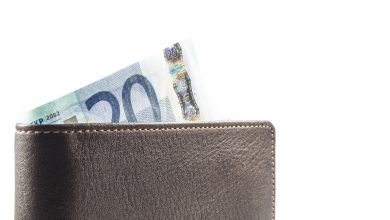Investing Opportunities Outside the Historic Bull Market
Stock Market Looking Frothy? Here Are Some Alternative Investments.

Up, up, up, and up – the stock market’s historic bull run has surpassed the ten year-mark, and some see no end in sight. It’s true that the Federal Reserve as well as the executive branch itself are about as accommodative as they’ve ever been, and some feel perfectly comfortable leaving all their cash in the “buy-the dip” market. For others, who might be wary of the fact that this market has yet to see the natural downturn part of what would be a normal market cycle, the stock market might be looking rather expensive. For those who think so, what else can you do with your money to make it grow without feeling like you’re waiting for the other shoe to drop? There are some other options out there. And while any investment of any kind requires a great amount of your own due diligence, you might find something better suited to your investing style in another arena. An alternative investment is any investment that doesn’t fall into one of the typical cash-like categories of stocks or bonds. While some can be financial, like venture capital investments or lending, many are often tangible, whose value can be derived from factors beyond numbers, like sentimental value or based on rarity.
Fine Art
According to the Wall Street Journal, art was the top performing asset class of 2018 – beating out even the S&P 500 for returns on the year with sales topping $67 billion. It’s not a get-rich-quick scheme, and experts usually recommend having a window of at least ten years to see a significant return on investment. It’s also an arena in which care must be given in regards to ensuring the authenticity of any piece on sale or at auction. The nice thing is it’s not correlated with the stock market – while art may have its own ups and downs, good works tend to appreciate over time, and many choose to include them as part of their estate to pass on to family members. No longer a hobby reserved for millionaires, fine art investing can be done today through platforms like Masterworks and Maecenas – which allow individual investors to purchase an interest in a single piece of art vetted by a professional.
Fine Wine
Lots of the best things in life are hard to put a price on, and you’d be hard pressed to find one who doesn’t appreciate a great glass of perfectly-aged wine. If wine is your thing, you may find it an option for more than just pairing. As an investment, wines can, with time and research, be a viable option. In 2017, a single bottle of specialty sauvignon sold for $350,000, though wines with such huge price tags are of course the exception rather than the rule. Wine investing, like fine art, takes years, and you’ll want to take into careful consideration how to store your precious vintages if you’re selecting your investments yourself. If you prefer a more managed approach, funds like Cult Wines and Farr Vintners will invest your money for you based on their expertise of what to buy and when to sell. The London International Vintners Exchange’s Liv-ex Fine Wine 100 Index, meanwhile, follows the top most sought-after wines, with wine ranking high on what bank Coutts & Co. calls the “passion index” alongside other luxury investments.
Antique Cars
Unlike some other tangible investments, cars generally tend to lose value over time. That said, those who are automobile-savvy and love to tinker may find a sweet spot for themselves in classic cars. Extremely unique or rare vehicles can sometimes see their value significantly increase over time with proper care, selection, or restoration, depending on your avenue of choice. Famous cars, or even cars that a person may have wanted years ago and now has the money to buy while supply has since waned, can drive up the price when supply is low and quality is high. Insurance costs and maintenance will be high on the list of financial considerations when entering into car collecting, and up-front costs can also be a barrier, but classic cars can run the gamut from antiques to newer models, depending on the characteristics of the car. Investment funds do exist to provide an entry into the classic car arena, and the Historic Automobile Group International upkeeps indexes across the collectible car market.
Other Currencies or Precious Metals
A battle is raging today between holders of physical gold and HODLers of what crypto-enthusiasts call “digital gold,” otherwise known as Bitcoin. While alternative forms of currency have been around for centuries in the form of precious metals like silver and gold, “digital currencies” are also promising to hold value in a new financial future backed by technology rather than paper. However, metals like gold still remain evergreen as a popular hedge against crisis and inflation and as a stable store of value. While jewelry can be a risky way to hold gold or silver, bullion coins or fine gold bars are recommended when deciding to invest in precious metals, with standard offerings like the American Eagle or Canadian Maple Leaf gold coins being some of the most internationally recognized. Exchange-traded funds for gold exist, but in the event that you’re holding gold to avoid a market catastrophe, having your gold investment in an exchange-traded fund might not be the best play. Silver and palladium are also popular investing metals, and while their prices can fluctuate over time, they remain relatively stable by comparison. Cryptocurrencies such as Bitcoin, on the other hand, are highly volatile – however, unlike gold or silver, they also remain highly liquid in the event you want to sell your holdings quickly.
Alternative investments can be a great way to diversify your portfolio holdings, or to cycle out your investments if you feel one aspect of your portfolio may be overdue for a downturn. Natural market cycles always have ups and downs, and diversification can be a useful hedge over time. In the event you have a specific interest in another arena, investments like antiques or art can be an investment as well as a hobby – a particularly good match considering that any alternative investment should also be met with a healthy dose of planning, research, and consideration as well as patience and prudence. Tangible investments can be riskier since they’re more item- and market-specific versus a general basket fund of S&P stocks, and can also be prone to their own market booms and busts. But for some, they can be a useful, enjoyable, and profitable option – particularly if it seems that the bull run may be getting a little long in the horns.



